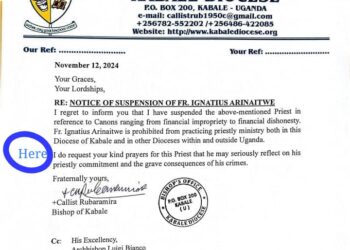Unwanted Witness Uganda has released the state of Digital rights report in Uganda 2019, detailing growing threats of surveillance technologies to the country’s democracy ahead of 2021 general elections.
According to the report, technology is increasingly being infused into the political process through the use of social media platforms for political campaigning, biometric registrations, and plans by police to monitor political rallies and demonstrations using facial recognition, Artificial Intelligence and other surveillance methods. All these technologies rely on collecting, storing and analyzing personal information to operate, but the hidden data exploitation systems on which these technologies rely also poses significant threats to free and fair elections.
“It is important for both state and non-state actors to rethink the pervasive use of technology and ensure that the public has a voice in how technologies are used and impact on their lives, societies and democracy.” reads the report. “Incredible amounts of personal data, including sensitive personal data, continue to be collected in a manner that disregards the standards set by the law.” it added.
The report highlights trends of increasing expansion of state and non-state surveillance operations with significant harm to the right to privacy of Ugandans as well as the protection of individuals’ data as a fundamental facet in democratic governance.
“Despite having a data protection legislation in place, Uganda lacks the institutional framework, processes and infrastructure to support law enforcement and meaningful protection of data privacy rights” says the report. “State and non-state actors have never taken any measures to change their policies and practices as per the obligations under the data protection Act, as incredible amounts of personal data, including sensitive personal data continues to be collected in a manner that disregards the standards set by the law” it added.
Free media and civil society’s operating space continue to experience extra-legal harassment and intimidation under state influence using the police and security agencies to arrest, interrogate and convict activists, journalists and opposition politicians. The report provides a case scrutiny and the application of the law.
In discussing this topic, this report provides engagement and guidance to ensure that the law upholds the international human rights obligations to protect the right to privacy and other fundamental rights.
The report recommends that;
1. Government of Uganda should immediately halt procurement and use of intrusive surveillance tools until there is convincing evidence that the use of these technologies can be restricted to lawful purposes that are consistent with human rights standards of legality, necessity and legitimacy.
2. Parliament should ensure that any legislation governing surveillance in Uganda is laid out in precise and publicly accessible laws and is only be applied where necessary and proportionate to achieve one of the legitimate objectives enumerated in Article 19(3) of the International Covenant on Civil and Political Rights.
3. The Ministry of Information, Communication Technology should expedite commencement of an open, transparent and inclusive process of soliciting for citizens’ participation in the formulation of regulations and guidelines for the effective implementation of the Data Protection and Privacy law, in order to safeguard privacy and freedoms.
4. Meaningful and conclusive investigations should be conducted before any cyber prosecution is considered by police, to avoid undue application of cybercrime laws to silence legitimate dissent.
Do you have a story in your community or an opinion to share with us: Email us at editorial@watchdoguganda.com












